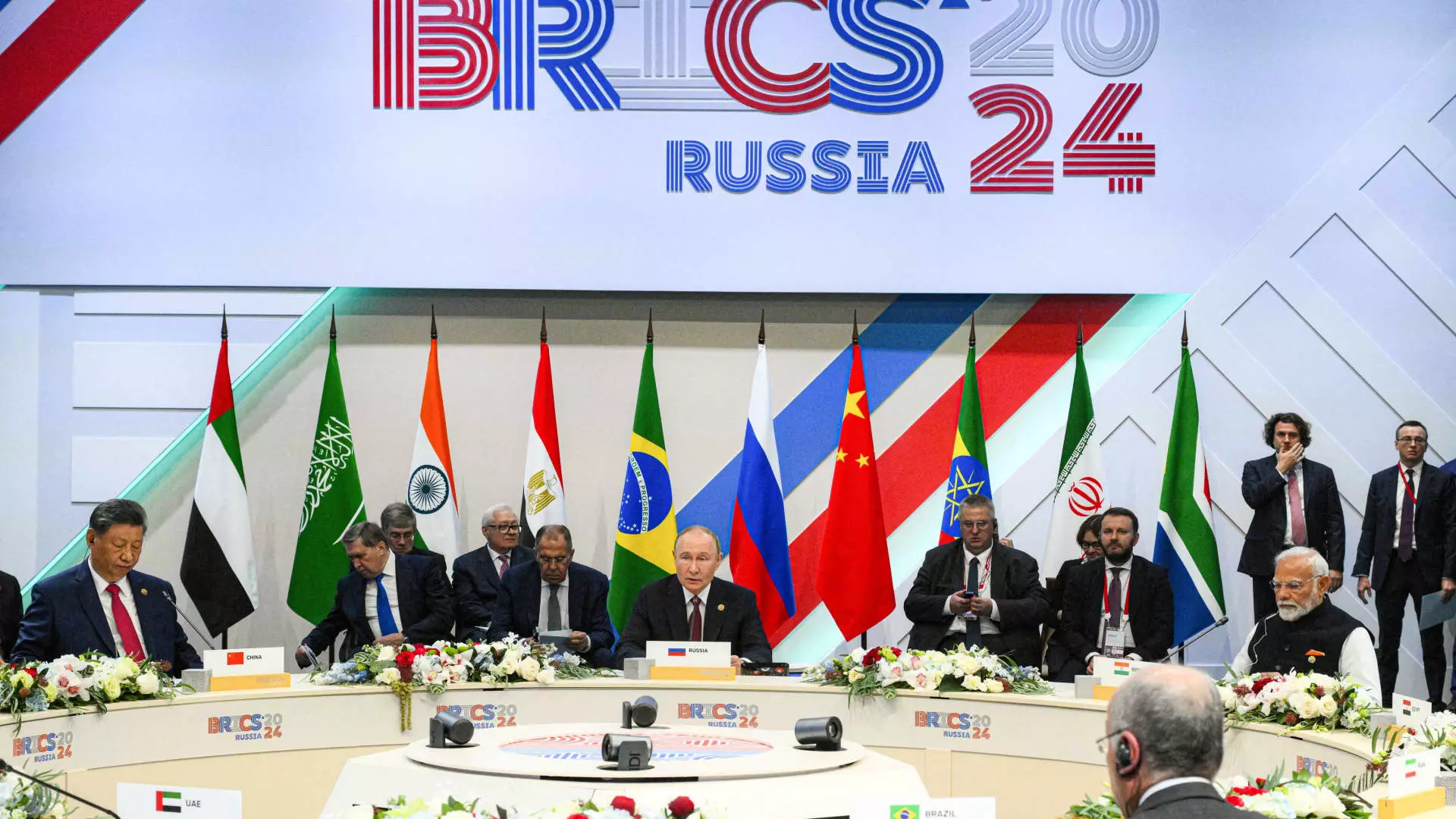As the world of international finance continues to evolve, the issue of currency dominance has surfaced as a particularly contentious topic. Recently, President-elect Donald Trump has made headlines with his bold threats of imposing 100% tariffs against a group of countries, collectively known as the BRIC alliance, if they take steps to undermine the U.S. dollar. This move reflects a growing tension between the established financial supremacy of the U.S. and the ambitions of a collective of emerging economies seeking to redefine their roles in global trade.
The BRIC alliance, which includes Brazil, Russia, India, China, South Africa, Egypt, Ethiopia, Iran, and the United Arab Emirates, as well as potential future members like Turkey, Azerbaijan, and Malaysia, has increasingly voiced dissatisfaction with the overwhelming influence of the U.S. dollar in international markets. Currently, the dollar accounts for approximately 58% of the world’s foreign exchange reserves, reinforcing its status as the primary currency for international trade — especially for commodities such as oil. However, discontent among BRIC nations and other developing countries is mounting as they advocate for a shift away from dollar reliance. This movement, known as de-dollarization, suggests that many of these nations are no longer willing to accept the status quo, which has seen America wield considerable power over global financial systems.
Trump’s recent social media assertions underscore his administration’s stance. He demanded a commitment from BRIC nations that they would neither create a new BRIC currency nor endorse any alternatives to the American dollar. His ultimatum is predicated on the notion that economic punishment would await countries attempting to challenge the dollar’s supremacy. By framing the conversation in terms of tariffs, Trump emphasizes the strength of American market access while attempting to coerce compliance from the BRIC nations.
In light of these threats, Russian President Vladimir Putin has criticized the U.S. for allegedly “weaponizing” the dollar. Reflecting on the matter during a recent summit, Putin expressed that while his country has not eschewed the dollar, sanctions and other limitations imposed by Western nations have led to a search for alternative systems. Russia has initiated discussions about establishing a new payment network to circumvent the existing SWIFT system — which is widely utilized for global transactions but has been used by the U.S. to enforce sanctions.
Furthermore, Putin’s remarks signal a broader sentiment shared among BRIC leaders. If the U.S. continues to dominate currency avenues and leverage economic sanctions as a tool of foreign policy, impacted nations may seek to bolster their own economic frameworks and independence from the dollar. In this context, Trump’s insistence that the BRIC nations must adhere to U.S. financial norms not only sounds implausible but potentially shortsighted.
The Uncertain Future of the Dollar as a Global Reserve Currency
Despite the alarm raised by the president-elect, the consensus among financial analysts suggests that the dollar’s dominance is not under imminent threat. Forecasting models conducted by the Atlantic Council indicate that the dollar is secure in its role as the primary global reserve currency for at least the near and medium term. This assertion is based on the dollar’s entrenched position and the lack of viable alternative currencies that could upend the existing systems.
Moreover, Trump’s history of tariff threats, including those directed at Mexico, Canada, and China, raises questions about the long-term impact of his administration’s trade policies. While his approach may resonate within certain domestic political circles, the effectiveness of aggressive tariffs in reshaping international trade dynamics is debatable. Canadian Prime Minister Justin Trudeau’s recent interactions with Trump reveal a cautious optimism about averting a trade war, underscoring the need for diplomacy over economic coercion.
While Trump’s tariff threats may provoke strong reactions among BRIC nations, the reality of global trade remains complex, with intertwining interests that cannot be easily delineated through punitive measures. As these emerging economies seek alternatives to dollar dependency, the world is witnessing a pivotal moment in the evolution of international finance. The outcome of this geopolitical tug-of-war will undoubtedly carry significant implications for future trade relations, currency dynamics, and the global economic landscape as a whole.


Leave a Reply